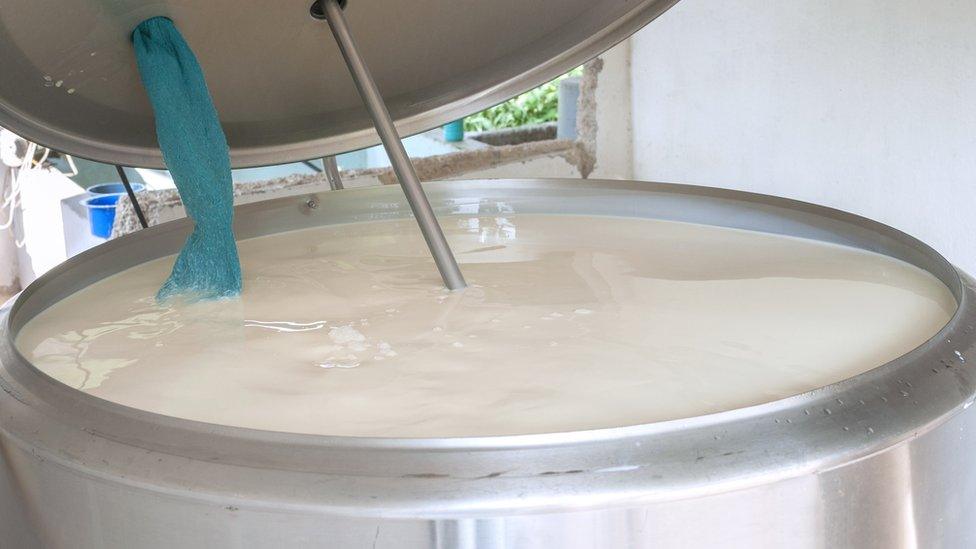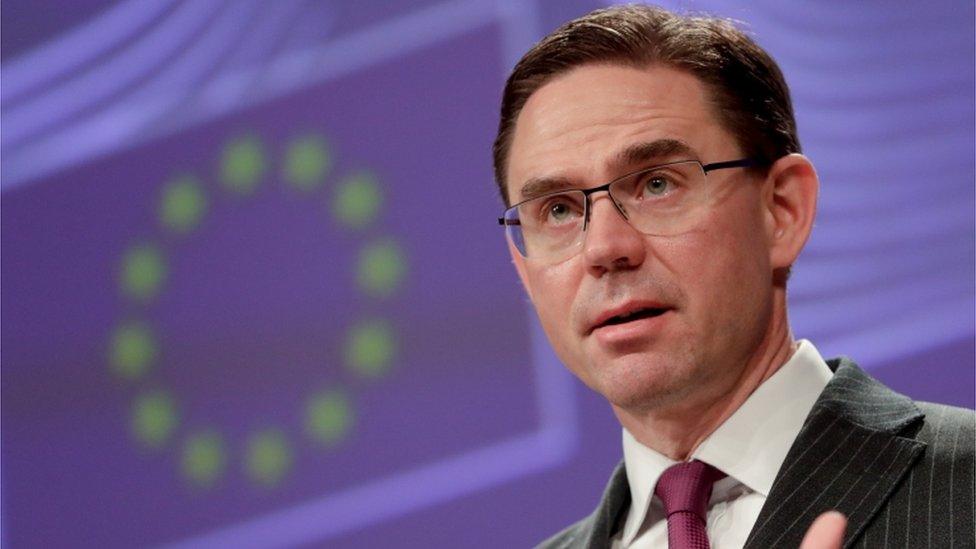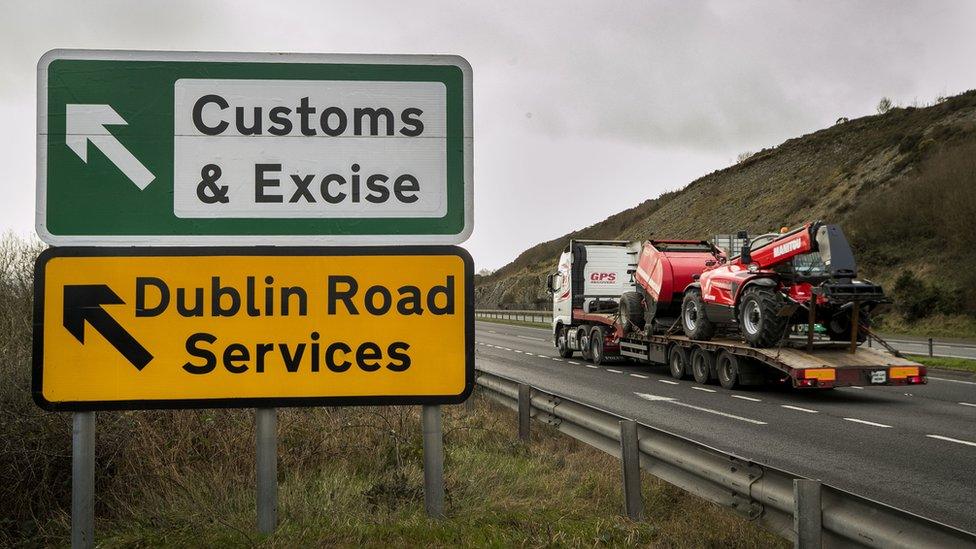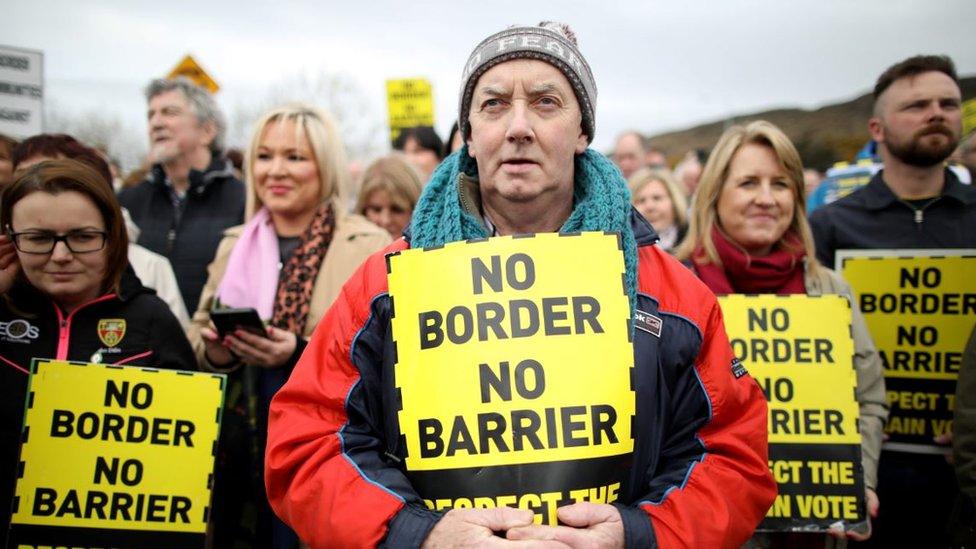Brexit: Fresh advice over exports of animal products
- Published

Officials may have to be available out of hours to certify things like raw milk
Businesses that export products made from animals have been issued with new advice on trade in the event of a no-deal Brexit.
The advice centres on the system of certification that will be required to send goods to the EU., external
It says extra staff are being trained to sign off on additional paperwork.
Officials may have to be available out of hours to certify products such as raw milk, that are dispatched promptly at night or weekends.
With the exception of some products, such as dairy, site visits will be necessary to inspect the goods before the certificate can be issued.
When it comes to cross-border movements, firms are advised to speak to Dublin officials for advice on the transport process involved.
Under EU law, all third country animals and animal products are meant to enter the EU's single market through an official border inspection post.
Export advice
The Irish government has said it does not intend to erect any infrastructure on the Irish border.
The export advice was published by the Department of Agriculture, Environment and Rural Affairs.
It repeats that, in the event of a no-deal, shipments of animal products will need to be accompanied by a so-called Export Health Certificate, signed by an approved vet.
So far, the United Kingdom has not been listed as an approved third country by the EU.
Without the listing, no exports of animals or goods described as being of "animal origin" can happen.
The government has made an application for third country status and says it is confident it will be approved before any EU exit.
The advice says that for those importing products of animal origin from the EU, the current position is that an incoming health certificate is not required.
But it advises that if it is then processed into another item meant for export back to the EU, proof of origin of the ingredients may be required to facilitate that onward trade.
'New checks developing'
European Commission Vice President Jyrki Katainen was speaking in Brussels where he was giving more details of the EU's no-deal planning.

Jyrki Katainen said EU countries were setting up border inspection posts.
Mr Katainen said: "We need to find new ways to check compliance of our product standards.
"This work is continuing. I'm sure we will manage to finalise the process by the time it is needed."
- Published4 April 2019

- Published30 March 2019
